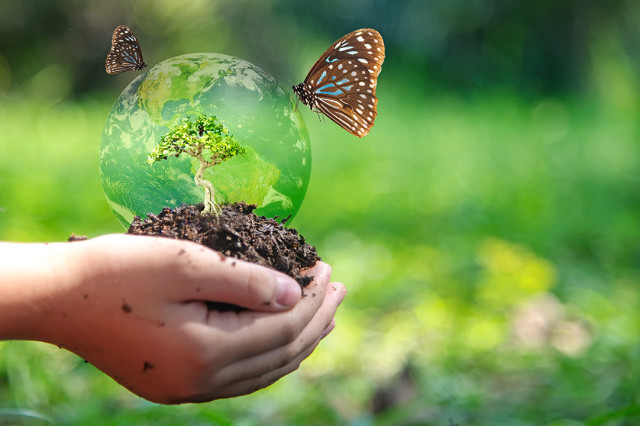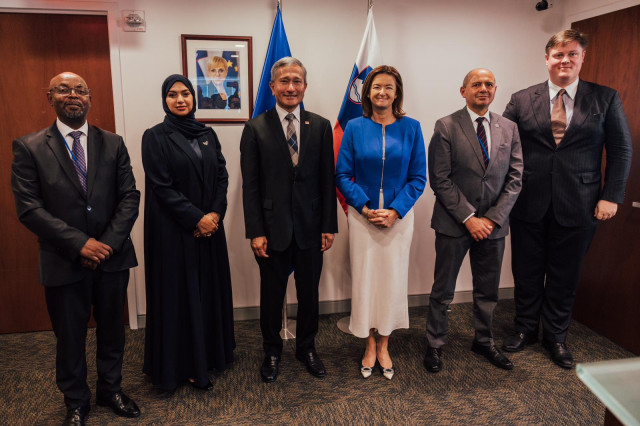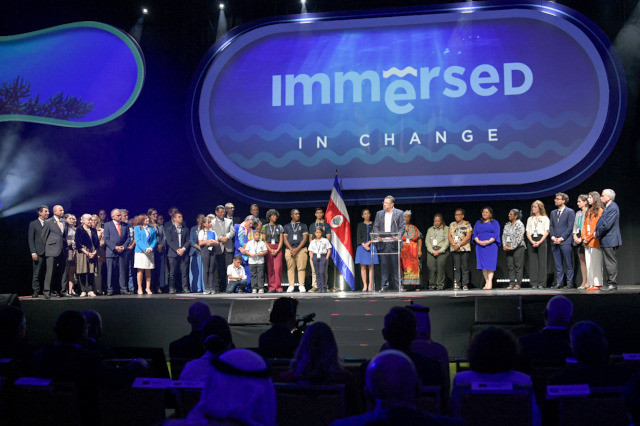The five thematic debates addressed sustainable transportation, infrastructure, tourism, energy and debt sustainability – all vital to the implementation of the 2030 Agenda. UN Sustainability Week marked the end of the UN Decade of Sustainable Energy for All. Green Group marked this occasion with a joint statement, calling for a more ambitious transition to a clean and just energy future.
"The members of the Green Group – Cabo Verde, Costa Rica, Iceland, Singapore, Slovenia and the United Arab Emirates – recognise the urgent need for more ambitious collective action on climate and on the transition to a sustainable and clean energy future. Energy is not just one of many priorities; it is at the core of implementing the 2030 Agenda. Global stability and security – even survival – depend on the international community's capacity to get the energy transition right.
Above all, it is imperative to follow up on the first Global Stocktake concluded at COP28 in Dubai, encouraging the transition away from fossil fuels in energy systems and the phase-out of inefficient fossil fuel subsidies. Doubling the global rate of energy efficiency improvements, tripling renewable energy capacity globally and ensuring energy access for all are equally important. Parties should pursue efforts to operationalise these goals through their NDCs and implementation plans. COP29 in Baku must aim high.
To be successful, the energy transition must be just. The Green Group reaffirms its commitment to pay special attention to the unique needs and challenges of the most vulnerable countries, including LDCs, LLDCs and SIDS, as well as for women and people in vulnerable situations, such as children and youth, older persons and indigenous peoples. By prioritising inclusion and the full and effective enjoyment of human rights for all, we ensure that no one is left behind in the transition to a cleaner and more sustainable future.
Mobilising public and private finance is a key prerequisite. We support efforts to foster innovation in renewable and low-carbon energy technologies through increased investment in research and development, knowledge sharing and technology transfer. Additional emphasis should be given to education and training programmes to build the skills required for the energy transition, both in developed and developing nations.
To accelerate action, it is key to scale up multi-stakeholder partnerships, bringing together governments, business, civil society and academia. Such partnerships are vital to facilitate greater engagement and cooperation, and to leverage the expertise, resources and innovation.
Strong rules-based multilateralism is of equal importance. The international institutions that drive the energy transition need reinforcement, notably the UN, the International Renewable Energy Agency (IRENA) and the World Bank. The Green Group supports the enhancement of cooperation and coordination among various stakeholders, and advocates for new clean-energy initiatives and partnerships, building on existing ones.
Ultimately, all efforts towards SDG7 must be pursued in an environmentally responsible manner, through the sustainable use of natural resources and by preventing ecosystem degradation. Water, above all, is central to clean and sustainable energy, yet water security is becoming ever more fragile as periods of drought or flooding become more frequent and unpredictable. It is therefore vital to plan water and energy action hand in hand.
Ladies and gentlemen,
As the UN Decade of Sustainable Energy for All draws to a close, the Green Group calls for the maximum commitment of all. We do not have yet another decade of time; we need stronger plans now. Green Group members will continue to lead the way with our respective national energy achievements, while mainstreaming SDG7 in all our collective projects, including the Climate Adaptation Accelerator and the Knowledge Hub on Water Solutions."








